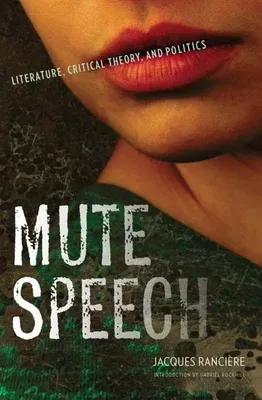Jacques Rancière
(Author)Mute Speech: Literature, Critical Theory, and PoliticsHardcover, 15 November 2011

Qty
1
Turbo
Ships in 2 - 3 days
In Stock
Free Delivery
Cash on Delivery
15 Days
Free Returns
Secure Checkout

Reading Age
Ages: 22
Grade Levels
17
Part of Series
New Directions in Critical Theory
Part of Series
New Directions in Critical Theory (Hardcover)
Print Length
208 pages
Language
English
Publisher
Columbia University Press
Date Published
15 Nov 2011
ISBN-10
0231151020
ISBN-13
9780231151023
Description
Product Details
Audience:
Ages: 22
Author:
Book Format:
Hardcover
Country of Origin:
US
Date Published:
15 November 2011
Dimensions:
22.61 x
15.24 x
1.78 cm
Educational Level:
Grade Levels: 17
ISBN-10:
0231151020
ISBN-13:
9780231151023
Language:
English
Location:
New York
Pages:
208
Publisher:
Weight:
458.13 gm